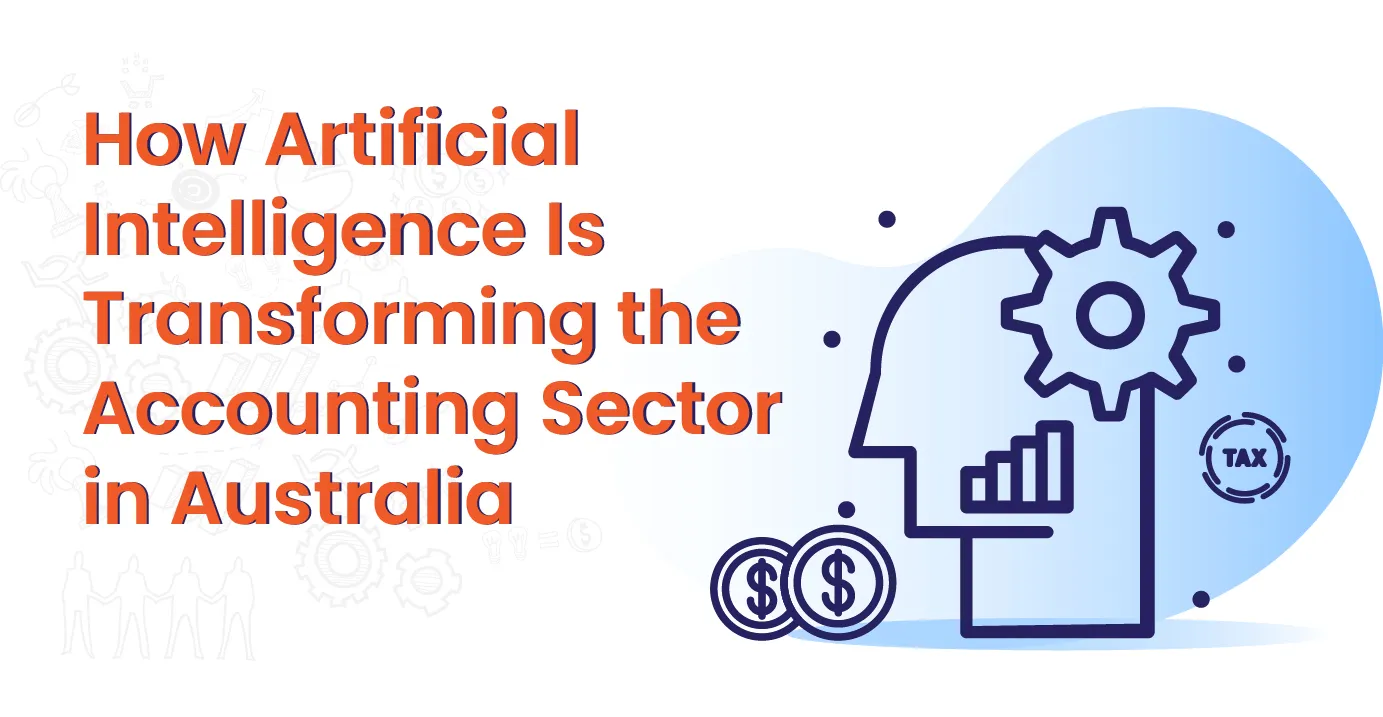
Artificial intelligence will amp up employee productivity by a whopping 40% by 2035(i).
In the constantly changing tech world, artificial intelligence (AI) has become a real game-changer, transforming the way businesses operate.
With its ability to boost efficiency and save time by automating tasks, AI is propelling businesses towards greater success.
In the realm of accounting, AI is like having a trusted and skilled personal assistant, ready to tackle complex tasks with speed and precision.
By leveraging AI-enabled systems, accountants can streamline and automate routine processes, such as data entry, report generation, and transaction processing. Through advanced algorithms and machine learning, AI sifts through vast amounts of financial data, uncovering patterns, anomalies, and trends.
It’s like having the agility of the Flash, effortlessly reducing processing time and accelerating mundane tasks to superhuman speed.
This article explores the ways in which AI serves as the ultimate magic wand for accountants, empowering them to overcome challenges and seize opportunities in the dynamic world of accounting.
Let’s dive right in!
With AI, accounting tasks that used to require hours or even days can now be performed with greater precision in a significantly shorter timeframe.
AI technologies such as machine learning and deep neural networks (DNNs) have become indispensable in determining which information should be accurately recorded. These technologies assist accountants in various industries who are juggling multiple responsibilities, allowing them to concentrate on areas of particular interest, such as revenue generation.
Moreover, AI technology enables the digitization of procurement procedures, eliminating the need for paper-based processes. This automated system not only saves time for procurement experts but also facilitates the analysis of unstructured data to ensure error-free documentation.
Use Cases of AI in Accounting
The implementation of artificial intelligence into accounting systems and applications aims to enhance the efficiency and speed of accounting operations. This will also assist accountants in achieving accurate data.
Here are a few practical applications of AI in accounting.
Data Processing & Analysis
AI-powered tools extract data from various sources, monitor it, and classify the transactions based on predefined rules for accurate categorization. It automatically generates financial reports, saving time and reducing errors.
Fraud Detection & Risk Assessment
AI algorithms detect financial irregularities, prompting investigation. Real-time monitoring and analysis identify potential risks, while historical data analysis provides insights for proactive risk mitigation strategies.
Predictive Analytics & Forecasting
AI tools empower accountants to create financial models, perform scenario analysis, and predict future cash flows. They generate accurate financial forecasts using historical data and market trends, enhancing decision-making and financial planning.
AI has the power to automate administrative tasks, analyze complex data, and extract valuable insights from customer information. By harnessing this technology, the accounting sector can evolve and free up their team from time-consuming and repetitive work. This allows them to concentrate on important responsibilities like client interaction and utilizing their soft skills.
Here are the top 6 ways of leveraging AI in the accounting sector.
Are accountants going to be replaced by AI in the future? This is a common question among accounting professionals.
AI technology is rapidly advancing in the field of accounting, and it has the ability to handle routine tasks that accountants usually do. However, concerns arise among the global workforce regarding potential job replacement by AI-powered machines and applications. Accountants fear losing their jobs if AI-based machines are introduced in the workplace.
While AI is transforming the accounting sector, it is unlikely to replace accountants entirely. Human intelligence will always be necessary to effectively use and manage technology.
Instead, AI augments the capabilities of accountants, enabling them to focus on higher-value tasks that require critical thinking, professional judgment, and client interaction.
Accountants who embrace AI and adapt their skills to work alongside AI systems will remain invaluable in providing strategic financial guidance, interpreting results, and maintaining ethical standards.
It’s expected that artificial intelligence in accounting will reach around $4.7 billion by 2024, with a growth rate of about 48% each year(ii).
The increasing demand for automated accounting, improved auditing, and better decision-making capabilities is what’s driving the need for AI in accounting.
AI is reshaping the future of accounting, making it smarter, faster, and more efficient than ever before. It is poised to automate certain compliance and technical tasks currently handled by accountants.
In the coming years, the field of accounting will rely heavily on cloud-based technology, and accountants must become proficient in its utilization. Recent advancements like artificial intelligence, machine learning, and the Internet of Things have contributed to significant growth in this area.
As numerous companies plan to migrate their data to the cloud in the near future, it is essential for accountants to familiarize themselves with the latest AI and machine learning algorithms.
Also, as the demand for manual work increases, possessing an up-to-date skill set will enable accountants to maintain a competitive edge in the industry.
So, are you ready to join hands with AI and become the “Avengers of Accounting”?
If you’re looking to simplify your taxes this tax season and relieve yourself of financial stress, our experts can help you do that and more with ease.
Schedule an appointment or simply drop us a line at info@nanakaccountants.com.au, and we’ll take it from there!
The information on this website is for general informational purposes only and should not be considered financial, taxation, or legal advice. While we strive for accuracy, Nanak Accountants does not guarantee the completeness or reliability of the content. Laws and regulations change over time, and we recommend consulting a qualified professional before making any financial or business decisions. Nanak Accountants is not liable for any loss or consequences arising from reliance on this information. For personalised advice, please contact Nanak Accountants directly.